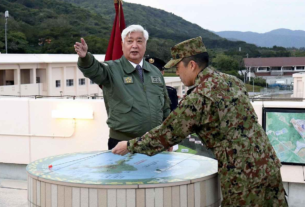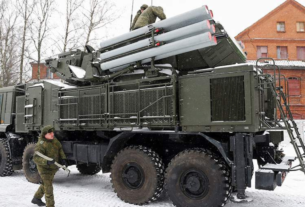On March 13, 2025, Chinese officials summoned Walmart executives for discussions. The meeting followed new U.S. tariffs imposed by former President Donald Trump.
The tariffs targeted Chinese-made consumer goods, including electronics and household items. Walmart, one of the largest U.S. retailers, heavily relies on Chinese imports.
“We need clarity on how this will impact our business,” a Walmart executive reportedly said. The company is concerned about potential supply chain disruptions and rising costs.
China’s Ministry of Commerce led the talks in Beijing. Officials urged Walmart to maintain strong trade relations despite ongoing tensions.
The U.S. tariffs, announced last week, include a 25% duty on selected Chinese goods. Retailers expect higher costs, which may lead to price increases for consumers.
Chinese officials warned Walmart about shifting suppliers. They emphasized the importance of continued investment in China’s manufacturing sector.
Walmart has explored alternative sourcing options in response to the tariffs. The company has increased purchases from Vietnam, India, and Mexico.
China remains Walmart’s largest foreign supplier. Many of its private-label products and electronics come from Chinese factories.
Trade experts say the meeting reflects China’s strategic approach. The government wants to retain foreign businesses despite rising economic tensions.
Chinese officials reassured Walmart that Beijing remains open to trade. However, they also signaled that retaliatory measures against U.S. businesses are possible.
Retail analysts predict higher prices on key goods. Consumers may see increased costs on products like furniture, appliances, and clothing.
Walmart has not publicly commented on potential price hikes. Executives are monitoring the situation before making final pricing decisions.
The retailer has faced similar trade challenges before. During the previous U.S.-China tariff disputes, Walmart adjusted its sourcing and logistics strategies.
China’s government continues to push for tariff reductions. Diplomats are urging Washington to reconsider policies that affect global supply chains.
U.S. officials have defended the new tariffs. They argue that the measures protect American industries from unfair competition.
Walmart’s response to the tariffs will impact its global operations. The retailer must balance cost management with maintaining strong supplier relationships.
Chinese businesses dependent on Walmart are also concerned. Factories producing Walmart-branded goods fear potential revenue losses.
Beijing has hinted at potential countermeasures. Some experts believe China could impose restrictions on American retailers operating in the country.
Walmart executives are expected to hold further discussions with both governments. The company seeks long-term stability in its supply chain operations.
As the situation develops, Walmart and other major retailers must navigate ongoing trade uncertainties. Decisions made in the coming weeks could affect global pricing and retail strategy.




